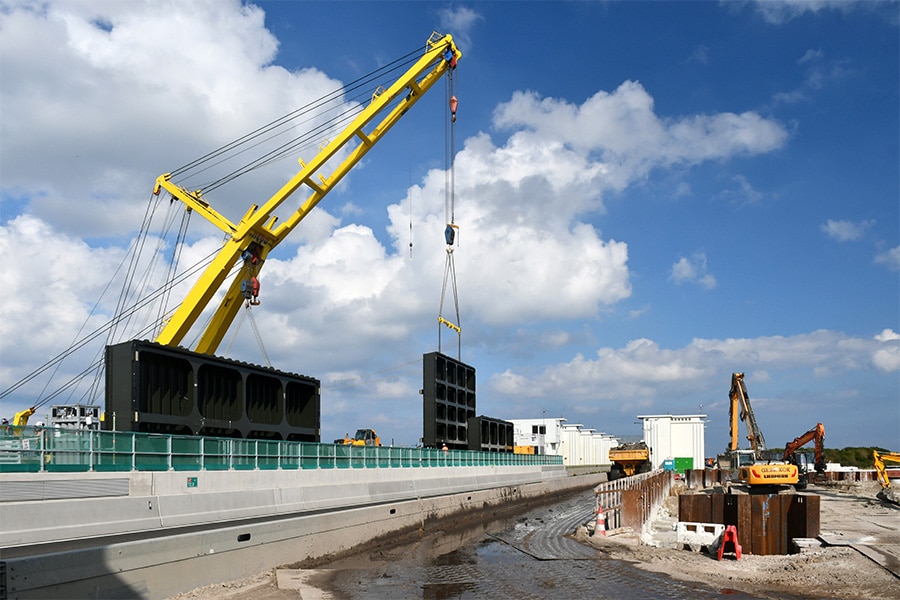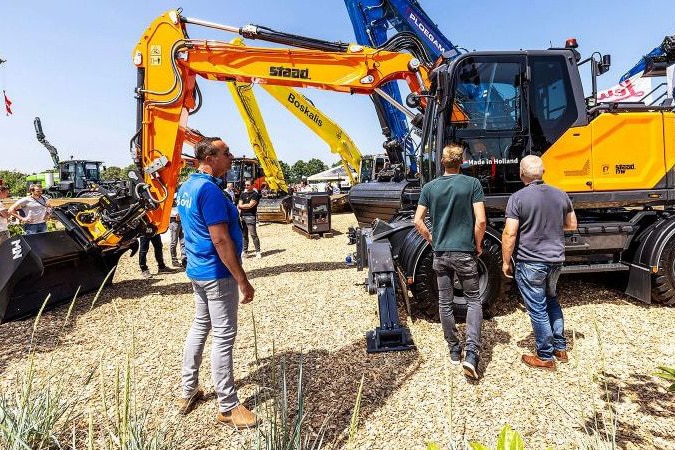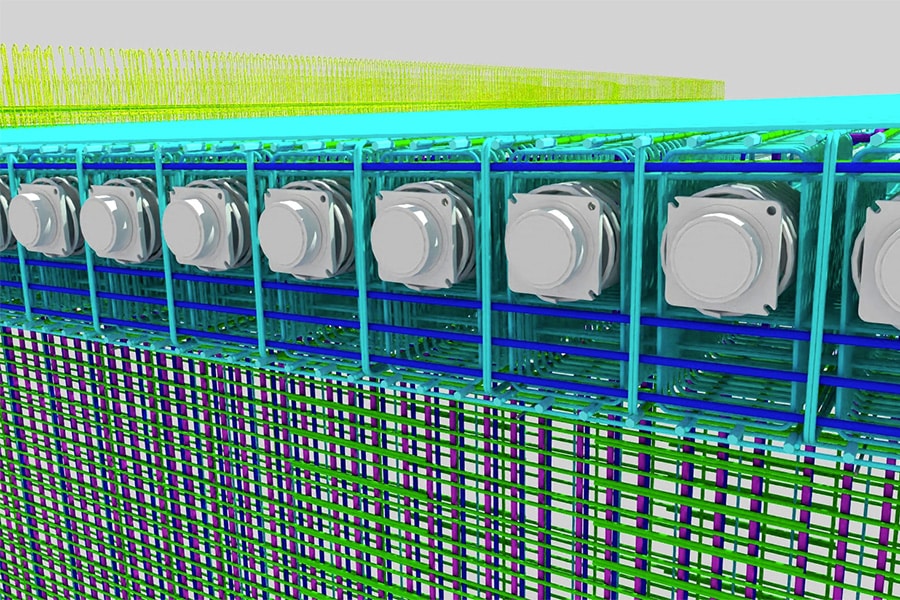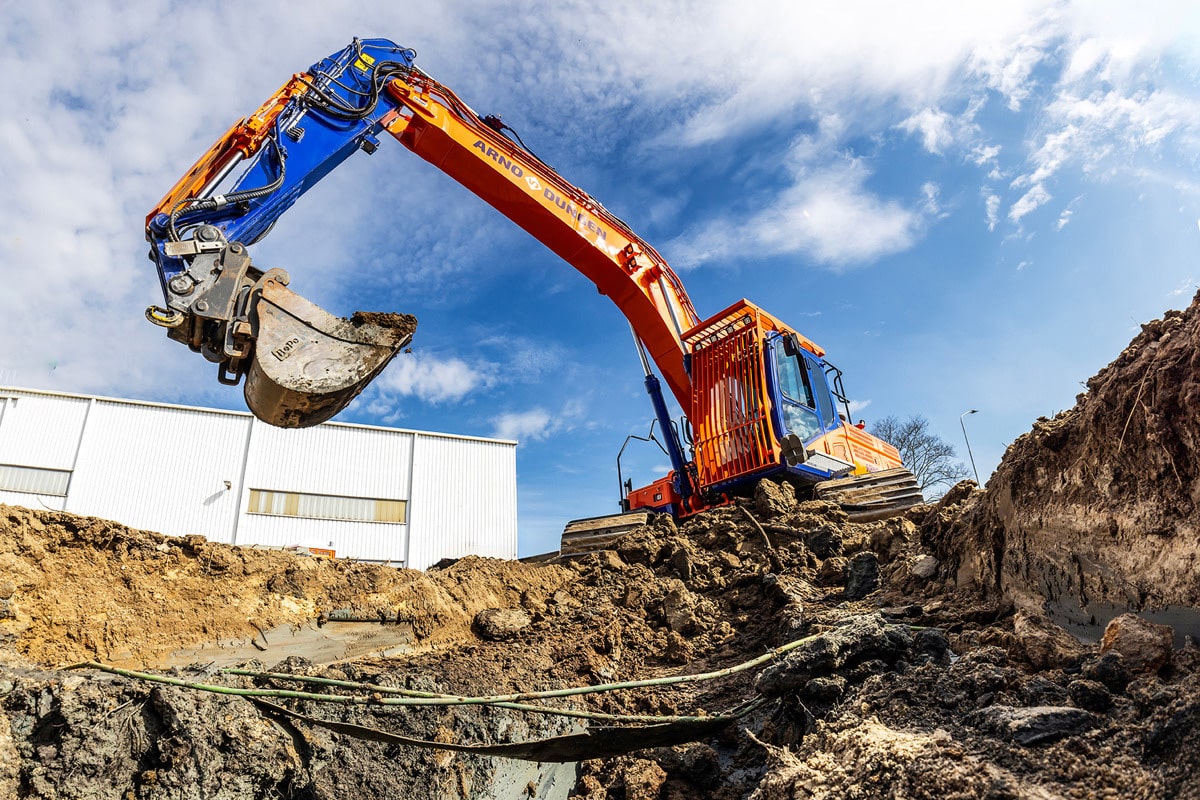
The Netherlands and water: thinking from the future
It's time for an overarching, long-term vision from politicians If it were up to Andrea Vollebregt and Hendrik Postma, the government should stop referring local water problems to the regions. Andrea is a director at the Dutch Association of Hydraulic Engineers and Hendrik is chairman of the association's board. In an interview with both, we look to the future, not the short term, but rather the long term.
"Politicians must have the courage to think about what the Netherlands will look like in 100 years," says Hendrik. "If we don't, we will constantly be behind the times. The Netherlands is too small; you can't keep referring problems to the regions. Far-reaching cooperation is needed, with an overarching central vision of the layout of our country."
'Begin with the end in mind'
Climate change has us all in its grip. Sea levels are rising, there are huge peaks and valleys in precipitation, and temperatures are rising. "There needs to be a plan for that beyond tomorrow, beyond the 2050 climate goals," Andrea outlines. "The recently released IPCC report doesn't tell us anything new, it just reinforces what we already knew. We need to act NOW. The report makes it clear that 'bold moves' are needed if we are to do anything substantial."
Hendrik outlines that a plan must first be on the table that looks beyond 2050. The climate goals are about mitigation measures, the plan should be about adaptive measures. "The industry does understand the urgency, it is now up to the government to provide clarity and take real action. And yes, drastic measures sometimes result in pain. There will be groups that feel more affected than others, there will be a sense of disproportion. But with a good transparent explanation, it should be possible that the intended result is achieved." Andrea concludes, "Begin with the end in mind. In other words, set a goal and work toward it, with all the resources and possibilities you have. This is no longer about groups, about money, about politics. This is about the survival of a country and its people, about security and livability. The bill that comes if you don't do it is many times greater than the sacrifices you make to achieve the goal."

Don't prescribe the solution, but prescribe a goal
"The problem is that we are currently beating around the bush with solutions that people have to implement. That inhibits. Don't prescribe the solution; prescribe a goal. Just tell them how much CO2-emissions they should start saving when and let them decide how to do it. Then companies can make use of their own strengths and perhaps surprising methods will come out of that, from which everyone will learn. By giving everyone the chance to do it their own way, you motivate people. That just feels different," Hendrik said.
The Netherlands in a pioneering role
"We live in a Delta, so we will have to make our contribution. We have to make a case for Europe, because we have a lot of expertise but we also can't do it alone. You can't save the world on your own, but we as a country can make sure that we lead the way with our knowledge and expertise," is Andrea's opinion. "If you lead by example, your credibility goes up, even though we are such a small country. Hydraulic engineering already has a rock-solid reputation worldwide." Added Hendrik: "It has to be a joint effort, we can use all our knowledge and skills, but the hydraulic engineering sector does not determine what happens. Together, let's start using our common sense and give substance to a water-safe world after 2050. Simply put, everyone needs to be less guided by the issues of the day. Communication is crucial here. Look at what happened recently in Limburg. You need to know what your neighboring countries are planning in such emergencies. If the protocol there is that the water has to leave the country as quickly as possible, we are surprised here with a huge influx of water. A European flood protection program is then in order. Along the coast a flood protection plan is easier to implement than along the rivers. In Limburg, everyone has woken up, but how do you maintain that sense of urgency? It is ultimately a problem for all of us."

Participation is good, but decisions must dare to be made
The Netherlands is the country of poldering; there are many opportunities for participation and we work on a compromise until most parties are satisfied. But in addition, we need a strong government that dares to choose a short-term direction for the long term, based on facts and urgency, not sentiments and opinions. The climate problem affects us all, now, but even more so in the future. Only not everyone feels that way yet. "A collective thought must prevail in which the acceptance of good measures becomes priority No. 1. And in doing so, leave enough room for innovation. For I am convinced that we desperately need it. Not only in the Netherlands, but also far beyond. For centuries, hydraulic engineers have shown to be at the forefront of this, shaping both our country and many a delta."
Hendrik concludes by saying that in addition to giving entrepreneurs room to implement mitigation measures on their own initiative, attention must now turn to adaptive measures. "Gather together the courage to set our sights 100 years beyond today, so that every step we take fits into the winding road there. Hydraulic engineers are ready to ensure that we can also take action and keep our industry alive with new growth. There will have to be funds that make that possible. If we do well here, the customers from abroad will automatically come to see how we do it and ask us to carry out similar works at their place. With this you actually set a chain reaction in motion and as a small country you can still do a lot to save the world a little bit."



